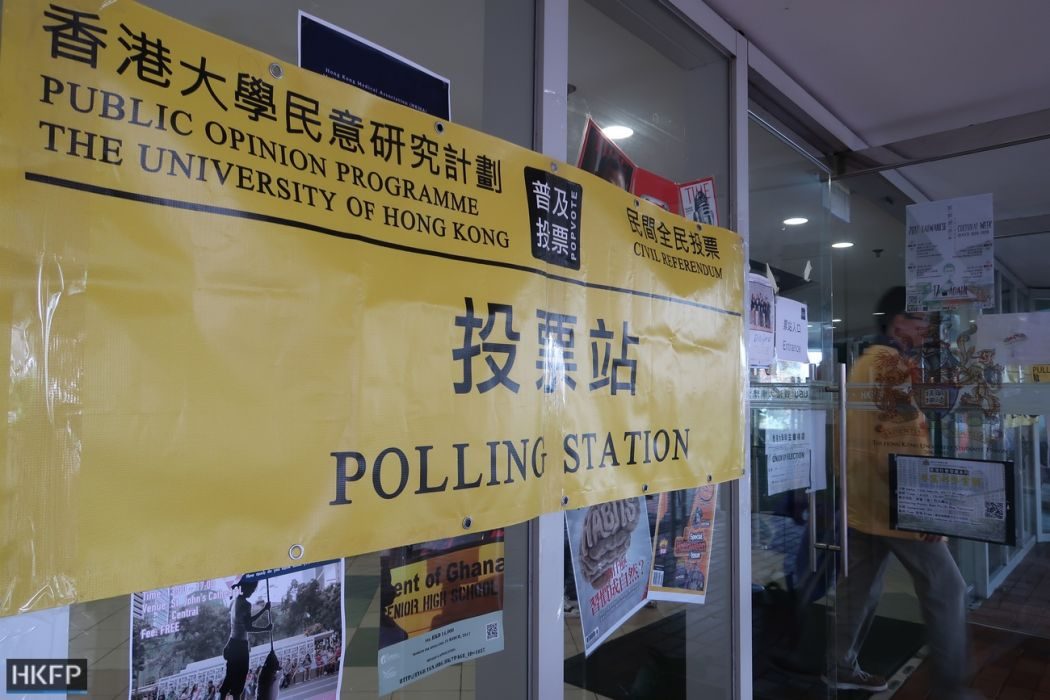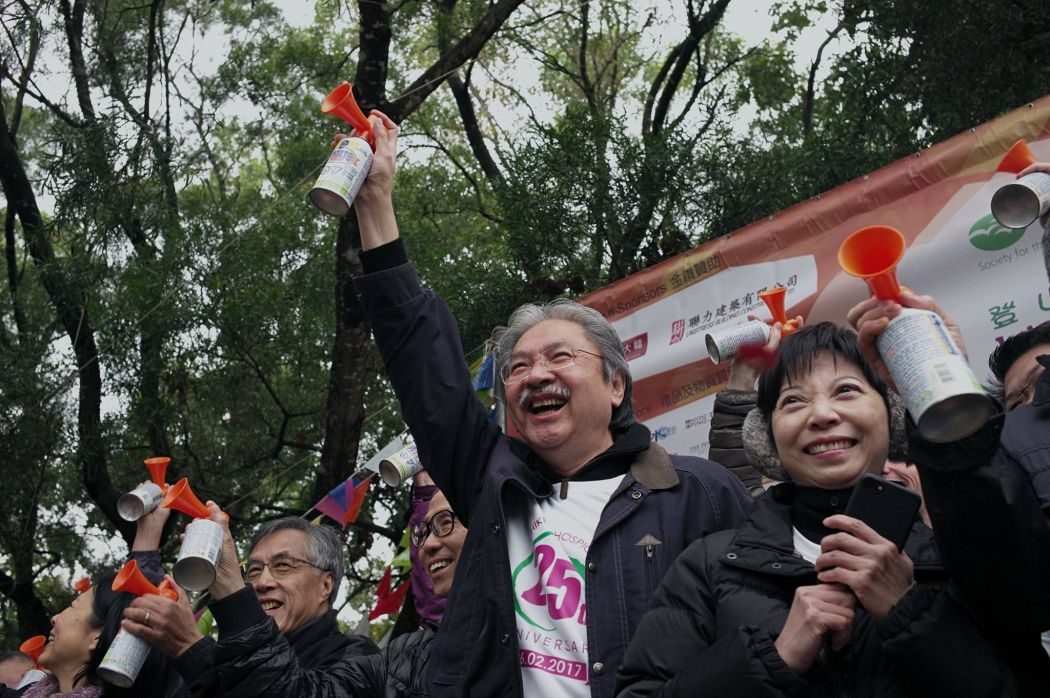Law professor Benny Tai has said that the low turnout in an unofficial referendum on the chief executive election is reflective of a strong sense of powerlessness in Hongkongers, raising alarm bells over the future of the city’s political development.
Around 65,000 people took part in the two-week poll which ended on Sunday, far short of the original target of one million participants.

Tai, one of the organisers of the poll, said Sunday that the low level of participation did not mean that Hongkongers had given up on pursuing democracy. Rather, he attributed the poor turnout partly to the rumours that Beijing has already chosen candidate Carrie Lam, which led many to feel that public opinion would not influence the election results.
The professor added that if Lam was elected – given her low popularity – the next administration would face even more governance challenges than the current administration.
“The public response to the civil referendum reveals the drastic changes Hong Kong’s political climate has undergone since the 2014 Umbrella Movement. For the democracy movement to move forward, we must understand these changes,” Citizens United in Action, the alliance of the poll organisers, said in a statement on Sunday.
Tai led a similar polling exercise in 2014, asking the public to choose from a number of proposals on the chief executive electoral system. Nearly 800,000 people participated at the time.

Poll results
This year’s unofficial plebiscite asked participants whether they supported or opposed each leadership candidate. The poll results showed that 96.1 per cent of participants opposed Lam. In comparison, 39.4 per cent of respondents opposed ex-judge Woo Kwok-hing and 4.2 per cent opposed ex-finance chief John Tsang.
Meanwhile, Tsang is the most popular candidate in the poll, with support from 91.8 per cent of participants. Coming in second, Woo was supported by 27.1 per cent of respondents. Only 1.5 per cent of participants supported Lam.
Over 94 per cent of the participants also opposed the existing chief executive electoral system.
See more: All polls but one show John Tsang is Hong Kong’s most popular leadership candidate

Privacy concerns
There have been privacy concerns over the polling exercise, with tech experts alleging security loopholes in the online polling system that the campaign used during the “public nomination” period. The organisers subsequently suspended the campaign, and relaunched it with a different polling system.
Although the organisers said the upgraded system is safe to use, the Privacy Commissioner for Personal Data said in a statement on Sunday that its preliminary assessment showed potential privacy breaches.
It said it received complaints that the personal data of some polling participants was leaked, and that the organisers should have taken all “practicable steps” to protect the personal data collected.
The small-circle leadership race takes place this Sunday.
